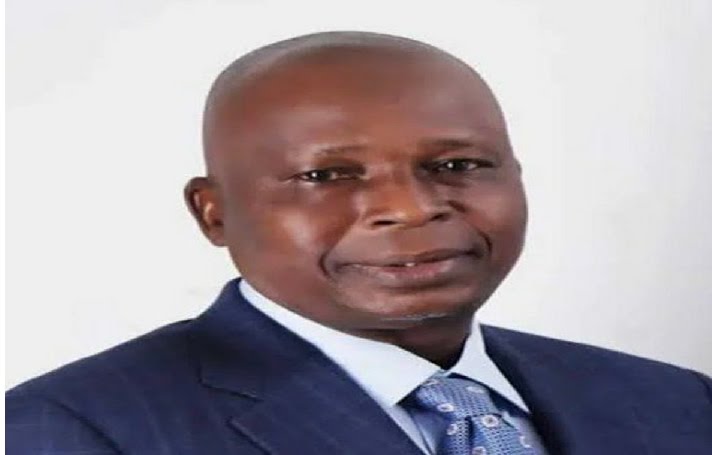8 Governors Face Federal Sanctions Over Local Government Autonomy - Full List Revealed
8 Governors Face Federal Sanctions Over Local Government Autonomy—Full List Revealed
By Achimi Muktari
In a groundbreaking move, the federal government is gearing up to impose sanctions on eight state governors for failing to conduct local government elections, defying a Supreme Court judgment on local government autonomy. With an October 31 deadline looming, these states are under scrutiny for delaying the implementation of financial independence for their local councils—a key victory for grassroots democracy in Nigeria.
Attorney General of the Federation and Minister of Justice, Lateef Fagbemi, disclosed the federal government’s plan to withhold allocations to local governments in states that have not held elections. The Supreme Court recently ruled that local governments must receive their allocations directly from the federation account, bypassing state governments.
Governors in the Crosshairs
According to Fagbemi, the federal government will not back down from enforcing this ruling, which many see as a necessary step to curb undue state interference in local governance. On Tuesday, October 22, he warned that states which fail to meet the deadline will have their local government allocations frozen.
At least 146 local governments in eight states remain without elected officials, threatening their financial stability. Below is the full list of governors and states at risk of sanctions:
1. Governor Lucky Aiyedatiwa – Ondo State Ondo State has postponed its local government elections four times. Initially scheduled for December 2023, the election has now been pushed to January 18, 2025. With 18 local councils, the state may see its funds withheld if elections aren’t held soon. Aiyedatiwa, currently running for re-election in November, faces mounting pressure.
2. Governor Ademola Adeleke – Osun State Osun State, under Governor Adeleke, has also delayed local government elections until February 2025. With 30 councils in limbo, the state risks missing out on federal allocations if it fails to meet the Supreme Court's mandate.
3. Governor Umar Dikko Radda – Katsina State Katsina has scheduled its local elections for February 15, 2025, despite the Supreme Court ruling earlier this year. Governor Radda's 34 local governments are among those in jeopardy of losing federal funding.
4. Governor Bassey Otu – Cross River State Cross River’s 18 local governments are also in danger, as Governor Otu has yet to conduct council polls. However, with elections set for November 2024, the state may narrowly avoid sanctions.
5. Governor Alex Otti – Abia State Governor Otti is facing similar scrutiny in Abia State, where local elections are slated for November 2, 2024. The delay could result in the withholding of funds for the state’s local governments until the elections are conducted.
6. Governor Dapo Abiodun – Ogun State Ogun State’s local elections, planned for November 16, 2024, mean that Governor Abiodun’s 20 local councils may not see federal funding if they miss the October deadline.
7. Governor Abdullahi Sule – Nasarawa State Governor Sule has scheduled Nasarawa’s local government elections for November 2, 2024, but with 14 local councils at stake, any delay could result in severe financial consequences for the state.
8. Governor Dauda Lawal – Zamfara State Zamfara’s local government elections are also planned for November 16, 2024. With 14 councils on the line, Governor Lawal may face sanctions if his state doesn’t comply with the court’s ruling by the end of October.
The Road Ahead for LG Autonomy
The federal government’s firm stance on local government autonomy is set to reshape the political landscape, particularly in states where
local government elections have been consistently delayed. The withholding of federal allocations, as stipulated by the Supreme Court, could lead to significant financial strains on these states, especially those heavily reliant on federal revenue to fund basic services and infrastructure at the local level.
What’s at Stake?
The push for local government autonomy is rooted in the desire to ensure that grassroots governance operates independently of state interference, thereby fostering more transparency, accountability, and efficiency in the use of funds. The Supreme Court’s ruling aims to decentralize power, allowing local governments to manage their own finances and better serve their communities.
By withholding allocations to states that fail to conduct elections, the federal government hopes to prevent governors from using local councils as political tools, often appointing loyalists to oversee these areas without the democratic legitimacy of an election. Financial autonomy would also give local governments direct access to their federal share, empowering them to address the needs of their constituents more effectively.
Legal and Political Ramifications
As the October 31 deadline approaches, legal experts and political observers are closely watching how the situation unfolds. According to Lateef Fagbemi, the federal government will conduct a thorough review of the reasons behind the delays in these states. Should the governors fail to act, they may face lawsuits, public backlash, and the loss of essential federal funding—resources critical to maintaining governance at the local level.
Political analysts warn that the withholding of allocations could fuel discontent among citizens, particularly in states where local government services are crucial to daily life. The sanctions could also lead to legal battles, with governors potentially challenging the federal government’s actions in court. However, many argue that the Supreme Court ruling leaves little room for maneuvering, and compliance is the only viable option.
Other States at Risk
Beyond the eight governors facing immediate scrutiny, other states may also be affected if they fail to conduct timely local government elections or comply with the federal government’s push for autonomy. This development serves as a clear message that the federal government is serious about enforcing the Supreme Court’s judgment.
The Case of Lagos State
In a related development, the Lagos State House of Assembly is considering scrapping Local Council Development Areas (LCDAs), which were created during President Bola Tinubu’s tenure as governor in 2003. According to a report by TrafficNg, the new proposed bill would amend the state’s local government laws, turning the LCDAs into administrative areas. Legal experts have noted that Nigeria’s constitution does not formally recognize LCDAs, sparking debate over their future role in the state’s governance
As the deadline for compliance draws near, all eyes will be on the governors of
the eight states as they scramble to meet the federal government’s October 31 deadline. Failure to hold local government elections and grant autonomy to their councils could lead to severe financial consequences, with federal allocations to these councils at risk of being cut off.
The federal government's decision to enforce the Supreme Court’s ruling sends a strong message about its commitment to local government autonomy and financial transparency. For governors like Lucky Aiyedatiwa of Ondo, Ademola Adeleke of Osun, and Umar Dikko Radda of Katsina, the stakes are particularly high. Without swift action, their states could be plunged into financial instability, affecting not only governance but also their political standing as they face scrutiny from the public and stakeholders.
A Political Gamble
For some of these governors, the delay in holding local government elections may have been a political strategy, allowing them to maintain tighter control over local affairs. However, this gamble could backfire, with the federal government's readiness to enforce the Supreme Court’s ruling signaling the end of an era of unchecked state dominance over local governance.
The looming sanctions have sparked intense discussions among political observers, with some predicting that states may rush to hold elections or make promises to comply before the deadline. Yet, the question remains whether these last-minute efforts will be enough to stave off the potential financial repercussions.
Broader Implications for Nigerian Democracy
The enforcement of local government autonomy represents a significant shift in Nigeria’s democratic process. By ensuring that local councils are free from state interference and directly receive their federal allocations, the federal government aims to empower these councils to better serve their communities, improve governance, and reduce corruption.
For Nigeria’s democracy, this move could set a precedent, ensuring that local governments are given the independence they need to function effectively. The autonomy ruling could lead to stronger local institutions, more accountable leadership, and improved service delivery, all of which are critical for the development of the country’s grassroots.
Conclusion
As October 31 approaches, the eight governors under the federal government’s watch will have to decide whether to comply with the Supreme Court ruling or face sanctions that could have long-lasting financial and political consequences. The federal government’s push for local government autonomy marks a pivotal moment in Nigeria’s governance structure, signaling a new era of accountability and independence at the grassroots level.
With the clock ticking, all eyes will be on these states as they navigate the complex political and legal terrain ahead. Will they meet the deadline and avoid sanctions, or will they face the consequences of defying a historic Supreme Court ruling? Only time will tell.




















